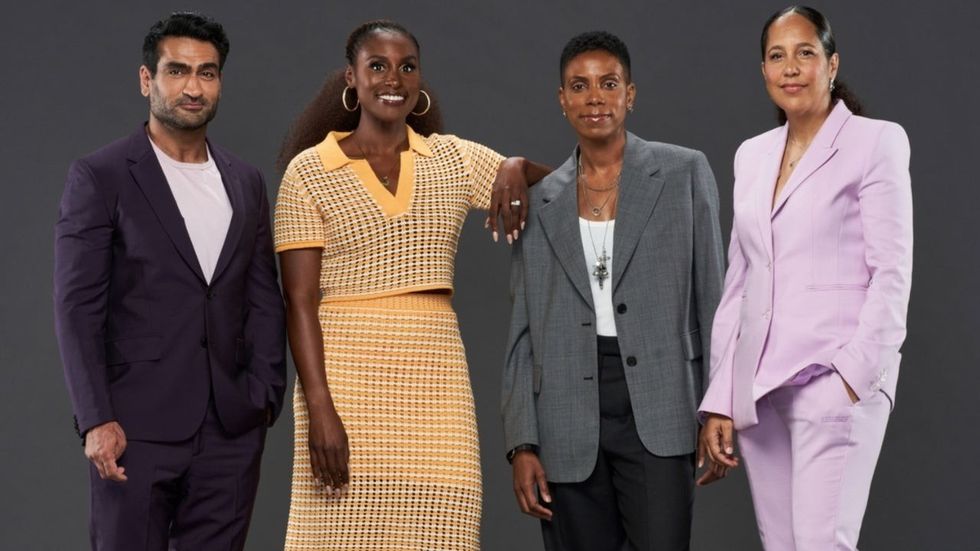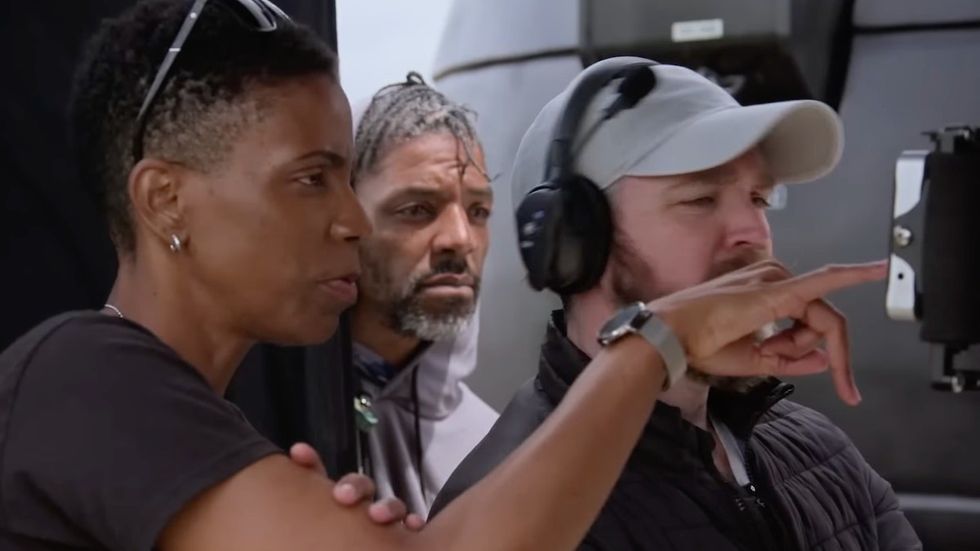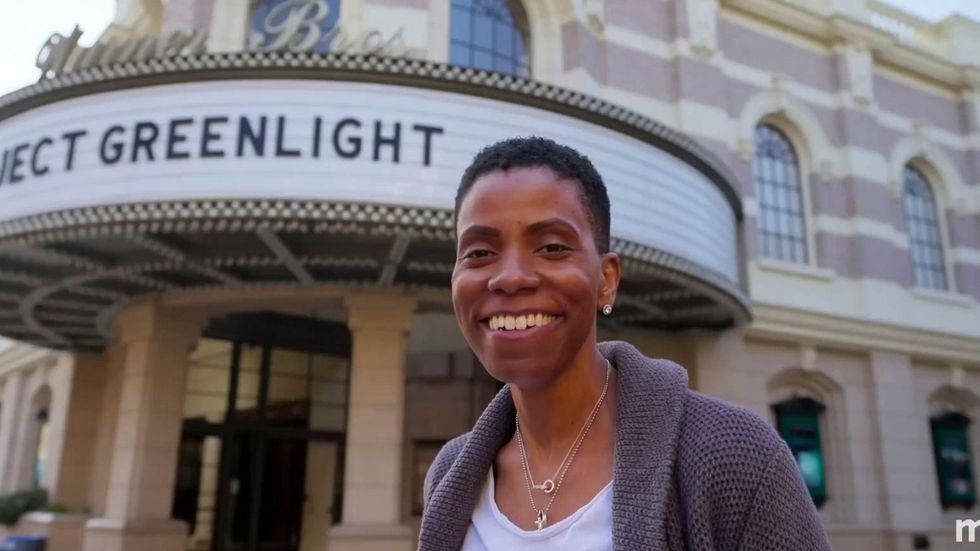When I was a kid, Project Greenlight was my first glimpse into how film and TV were made. It was a show that exposed me to the great dream that is working in Hollywood.
And it’s a big part of why I’m out here working today.
However, I cannot imagine what it would have been like for me to watch those early seasons and feel as close as I did to their stories without seeing myself represented all over the screen.
The lack of diversity within the show has come up in previous seasons, but it was never really addressed the way the new season, called Project Greenlight: A New Generation, does.
The aim is for a more diverse and inclusive show.
Mentors Issa Rae, Kumail Nanjiani, and Gina Prince-Bythewood lead the audience through picking a woman to direct and make a movie–something that has never happened on any other season.
They settle on Meko Winbush, and we follow her journey as she deals with the trials and tribulations of making a feature film in Hollywood.
Rather than sit here and nitpick Winbush’s moves within the show, I wanted to compile 10 lessons I took away from watching this season.
So let’s dive in together.
1. It’s All Collaboration

Filmmaking is a collaborative process that involves various professionals, from directors and writers to cinematographers and editors.
On a show like Project Greenlight: A New Generation, you really get to see the nitty gritty of what it takes to work together with people.
Effective communication and teamwork are crucial for a successful project. And if you get wires crossed, the problems trickle down from there.
2. You Can’t be Over Prepared

In the most recent season, I found that they left the director on an island a lot and expected her to just know how things are done.
I’m not sure why you have mentors if no one is teaching, but it showed me that you have to prepare. And then prepare some more.
Thorough pre-production planning, including script development, storyboarding, and scheduling, can help streamline the filmmaking process and prevent unnecessary issues later on.
3. Nothing is Set In Stone

This season was defined by problems that arose in all sorts of different areas. And the drama of the TV came from watching Meko Winbush deal with them. And sometimes, it felt like they were coming a mile a minute.
The script was wrong, the casting falling apart, etc.
Filmmaking never goes exactly as planned. Being able to adapt to unexpected challenges, whether they’re related to location, budget, or casting, is a vital skill for filmmakers.
4. Learn Where to Spend Money

This is something I think doesn’t come up on the show enough, but really should. So much of making a movie is making decisions based on the money you have.
Money affects days, cast, scenes, and everything that happens.
Budget constraints are common in filmmaking. Learning how to make the most of limited resources without compromising the quality of the film is a valuable lesson.
5. Find a Mentor You Trust

As I mentioned briefly earlier, I always think the mentors on this show need to be more involved. They’re dropping in a director with a broken script and a bunch of people with immediate opinions.
In real life, find some mentors! People who you can talk to (without cameras) about the hurdles of this business. People who have experience and want to share it with you.
Receiving and incorporating constructive feedback from peers, mentors, and team members can lead to significant improvements in the script, direction, and overall production.
And people who have been there before have endless amounts of wisdom you can tap into.
6. Details Matter

While every episode has a big theme this year, you’ll see that the details are what goes wrong or right, and what dictates how things turn out.
One of the funnier things in the season is just how many details go wrong. It starts with the script and then trickles downward to casting follies, COVID, and post.
The more you can get the details right, the more things will go your way.
7. Take Your Time Casting

Selecting the right actors for each role is crucial. A strong cast can bring depth and authenticity to the characters and contribute to the film’s success.
While it’s hard to tell how much time Winbush was given to cast Gray Matter, it never felt like enough on screen. Taking your time with this stuff matters because so much of the success of a film has to do with the people packaged inside it and their performances in it.
Get people you can trust to do a great job. Don’t settle for less.
8. The Script Is the Most Important Part
Filmmaking is about storytelling. Crafting a compelling narrative with well-defined characters, clear stakes, and emotional resonance is at the heart of a successful film.
So that’s why I felt really bad for Meko Winbush when they gave her a script they had major problems with and asked her to basically rewrite it while in pre-production.
You have to spend time getting the script right before you jump into shooting. It’s not something you can fix in post.
9. Find a Way to Mesh With Many Personalities

The one thing the show gets right is that it shows you have to work with a ton of different people to get a movie made. You may not like all of them. They may not even like you, but you all have to work together.
Treat people with respect. That’s really the most important part of any collaboration.
Creative disagreements among team members happen all the time. Learning how to navigate and resolve conflicts while keeping the project’s best interests in mind is the most important skill.
10. Keep Fighting

Every season of Project Greenlight comes down to the same thing: fighting through a project to see it through to the end.
Filmmaking can be challenging and demanding. Persevering through obstacles, setbacks, and doubts is essential to seeing a project through to completion.
That’s what makes this good TV and also what makes what we do so hard.
Let me know what you thought of this season in the comments.
Author: Jason Hellerman
This article comes from No Film School and can be read on the original site.
